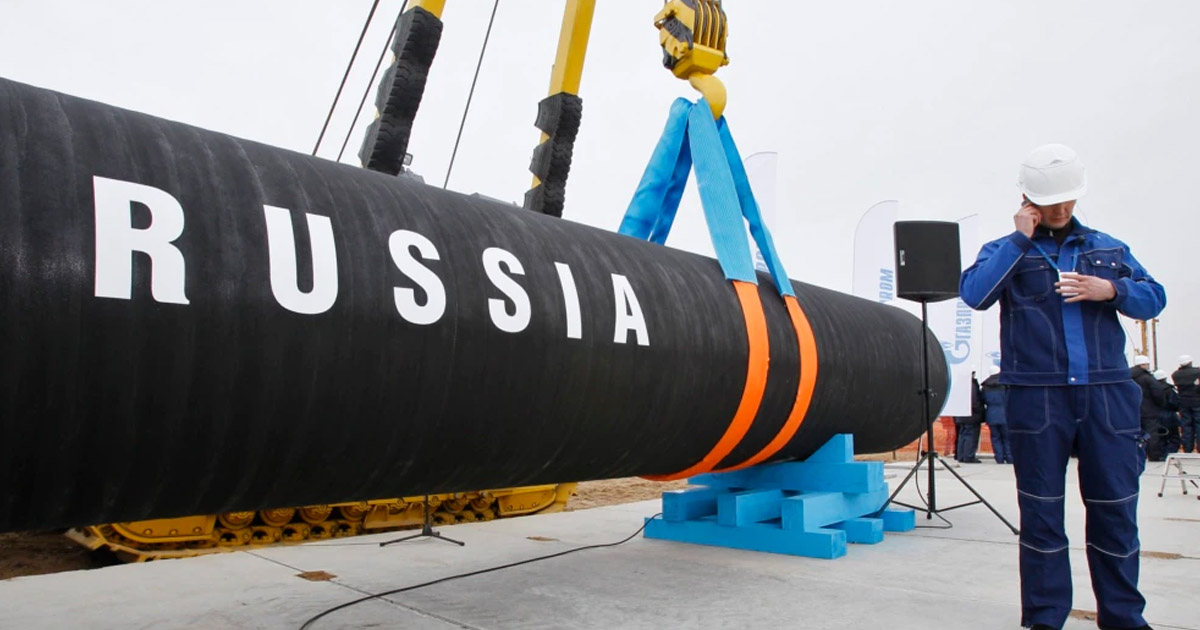Ukraine conflict roils global energy markets

Ukraine conflict roils global energy markets. The conflict between Russia and Ukraine has roiled global oil and gas markets, leading to supply problems and higher prices, with oil prices hitting more than $110 a barrel on Thursday even as demand for Russian oil collapsed. Uncertainty about the duration of the conflict makes it difficult to predict how much of this disruption will be permanent.
Ukraine conflict roils global energy markets
Theodore Karasik, a Gulf analyst in Washington, told VOA that there are many “uncertainties” in the military confrontation that “could drive energy prices even higher.” He added, “In any case, the energy industry is changing dramatically.”
Karasik said, “The energy situation and prices depend on how long this conflict lasts and to what extent it ends. We have seen Russia suffer from Ukraine’s actions. Broad sanctions. These sanctions on Russia in the energy sector will affect the way the Russian energy industry operates, and we can’t see that yet.”
Meanwhile, purchases of Russian crude oil have stalled due to possible Western demand for energy Uncertainty about direct sanctions on product exports is rising, sending prices plummeting and forcing sellers to look for alternatives.
Russian exports of Urals blended crude, traded as a spread to the standard Atlantic Basin Brent crude (Dated Brent), fell to new lows in recent trading.
An oil trading industry source told VOA that European sellers are now actively looking for alternative crude supplies. Poland’s state-run oil company is getting supplemental crude from longtime supplier Saudi Aramco, most of which will come from local North Sea production as well as West Africa and the United States.
Chinese refiners, especially those in Shandong province, are important sellers of Russian Urals and ESPO blends, the unnamed source said.
Analysts said, “They are proving to be less concerned about sanctions, having already bought large volumes of Iranian crude last year. But the current disruption in global banking markets due to SWIFT sanctions means it is difficult for buyers to pay for the cargo even if they wanted to. Rosneft The sanctions imposed on the fleet of 2008 have only increased the logistical difficulty of buying Russian crude.”
Experts believe Russian companies may eventually seek to set up accounts with Chinese banks to engage in such transactions. Loads of Urals crude currently taking place in the Baltic seem likely to be shipped in bulk to northern China, with or without a named buyer.
An energy industry source told VOA, “But there will be losses. The current market structure means that the long-term arbitrage economy has limited income, and the storage economy is loss-making. It would take a few months to ship crude oil to Shandong, which is a losing proposition. Even if the goods have nowhere else to go,”
said Paul Sullivan, a Washington-based Middle East analyst, of the number of uncertainties that could change the energy market. “This conflict raises the risk, and therefore raises the risk premium, which raises energy bills,” he said.
Sullivan, on the other hand, said, “Sanctions (on Russia) could hit the world economy and drive down energy prices. At the same time, “some oil and gas companies are leaving or divesting from Russia, potentially disrupting supply chains.”
Sullivan went on to say that potential “Russian terror on the pipeline could push up oil prices,” and “Turkey will take a risk on Russia.” The closure of the strait by warships” may also “affect energy ships”.
Experts pointed out that most of the Russian crude oil is sold through international trading companies such as Trafigura Group, and only a small part is sold directly by Russian companies. If Russian crude is sanctioned, the long-term dynamic basis of Russia’s seaborne export trade could change, reflecting recent developments in Russia’s upstream industry, which has fled as major Western oil companies pulled out of projects.
Said Sadek, an Egyptian political sociologist, told VOA that North African countries such as Egypt and Algeria are being asked to increase gas exports to Europe to compensate for Russian gas, which accounts for 40 percent of European imports.
“The North African countries that produce gas have limited stocks, but they have increased their LNG volumes by 365 percent, because 90 percent of Egyptian gas is used domestically and 10 percent is exported, and we get gas from Israel and Cyprus, put it in,” Sadiq said. Converted to LNG for export.”
He said Qatar was also required to increase LNG exports to Europe but Qatar already exports most of its gas to Asia.
“Qatar has signed many long-term contracts with South Korea, Japan and China that cannot be rescinded.”
Sadiq emphasized that the Middle East country that may make up for Russia’s natural gas exports to Europe is Iran. He believes that some European countries are hoping to lift sanctions on Iran. , allowing Iran to resume oil and gas exports. He still questioned whether Russia’s ally, Iron, was willing to “stab Russia in the back.”
Sadiq pointed out that some MENA countries are facing a potential food crisis “because they import large quantities of wheat from Russia and Ukraine. Countries such as Tunisia, Sudan and Lebanon cannot afford more expensive alternative sources of wheat,” if With shortages of staples like bread, they could end up facing instability.




